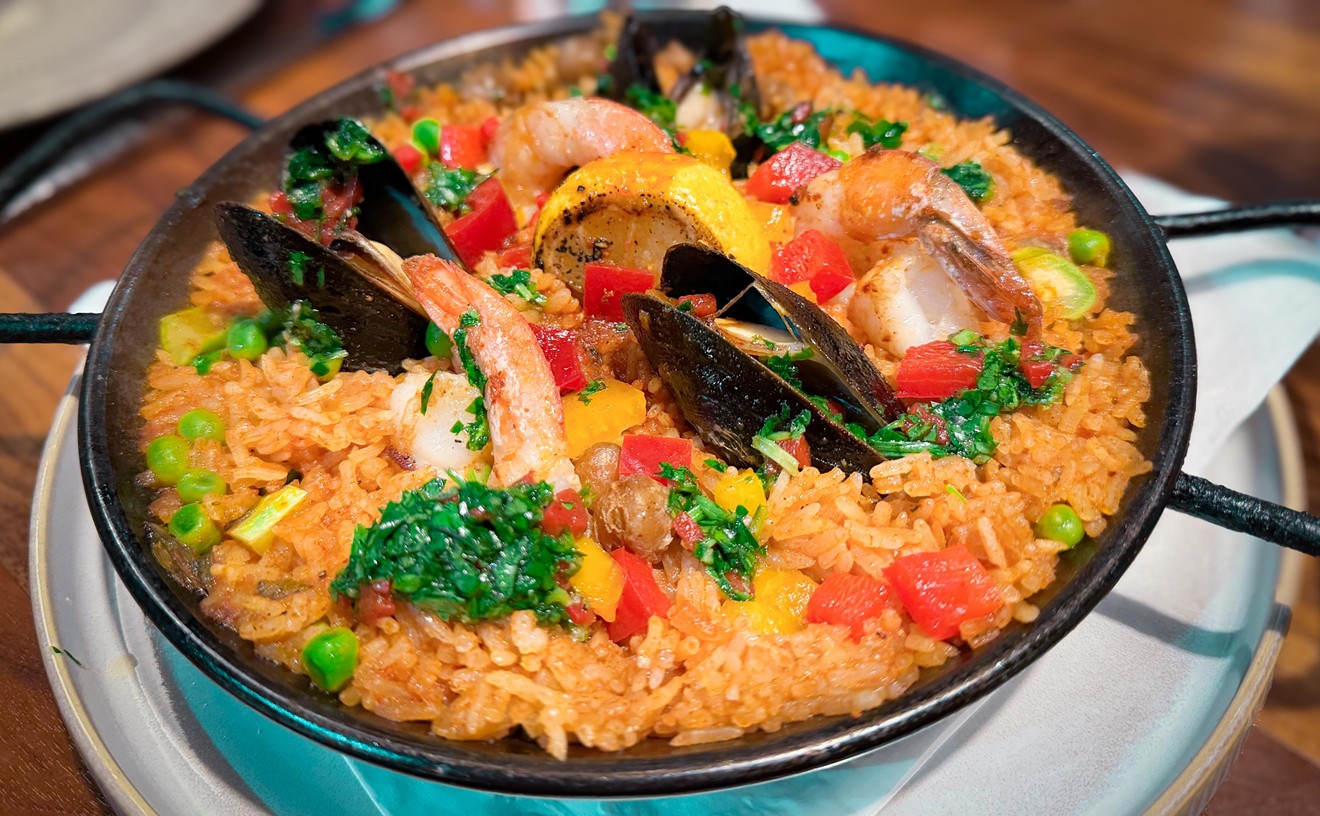When 35-year-old Marina Pomaro purchased The Russian Banya in Carrollton, she and her husband were looking to save a bit of the Russian culture that stands in the Dallas-Fort Worth area.
“Me and my husband, we were upset it might close down and nobody [was] going to step in to preserve it,” she says. "One of the reasons we got this business was it was such a unique place. People come from Houston, Austin, Arizona, Oklahoma … [We wanted] to preserve the place here, to keep the place.”
The business is still part-spa, part-restaurant, but the dining side is now called the Volga Restaurant, named after a major river in western Russia.
Pomaro purchased the business in June 2015 and says it had originally opened in 2006. She has since worked with her team to redecorate (fresh paint, taking out carpet) and perfect the menu.
The menu, which is a decent-sized book, features a thorough selection of Eastern European, Soviet, Russian, Georgian, Crimean, Tatar and Uzbekistan cuisines. If you don’t know what any of that means, there are descriptions of each in the beginning, and many items have pictures and paragraph descriptions, which seriously come in handy if you’re unfamiliar with food from the former USSR.
“It’s unique because you cannot find Georgian dumplings anywhere; also, you cannot find the real samsa bread nowhere except here. It’s traditionally from Uzbekistan bread, and khinkali is traditional Georgian dumplings, so it’s variety food that’s almost impossible to find in Dallas. Of course, you can find it in New York.”
Pomaro was born in Volgograd (formerly Stalingrad). She met her husband there and moved here when she was 23.
Pomaro’s parents work in the business, as well. Her mother, Natalia, has a cooking degree from Russia and works as a cook in the kitchen. Her father, Alex, works on the banya side of the business. Banya means sauna, and by the way, you can experience what appears to be the country’s only wood-burning sauna here. So, there’s that.
The dining room sees good business on weekends for birthdays and other celebrations.
“But on the regular basis, during the week, you don't just see Russians coming here [to] eat all the time,” Pomaro says. “We wanted the Russian community to come, but they do not come as much as we hope. A reason, I think, why is because we serve Russian food they can cook at home.”
Not everyone has that excuse.
“For American people, it’s [a] unique place, and it's [a] different place,” she says.
This is a restaurant worth exploring, to learn more about the Russian culture and get an excellent experience in what this cuisine is all about.
"For me, first of all, it reminds me of home. Secondly, we make everything from scratch,” she says. “We want people also to experience homemade food."
[
{
"name": "Air - MediumRectangle - Inline Content - Mobile Display Size",
"component": "18855504",
"insertPoint": "2",
"requiredCountToDisplay": "2"
},{
"name": "Editor Picks",
"component": "17105533",
"insertPoint": "4",
"requiredCountToDisplay": "1"
},{
"name": "Inline Links",
"component": "18349797",
"insertPoint": "8th",
"startingPoint": 8,
"requiredCountToDisplay": "7",
"maxInsertions": 25
},{
"name": "Air - MediumRectangle - Combo - Inline Content",
"component": "17105532",
"insertPoint": "8th",
"startingPoint": 8,
"requiredCountToDisplay": "7",
"maxInsertions": 25
},{
"name": "Inline Links",
"component": "18349797",
"insertPoint": "8th",
"startingPoint": 12,
"requiredCountToDisplay": "11",
"maxInsertions": 25
},{
"name": "Air - Leaderboard Tower - Combo - Inline Content",
"component": "17105535",
"insertPoint": "8th",
"startingPoint": 12,
"requiredCountToDisplay": "11",
"maxInsertions": 25
}
]










